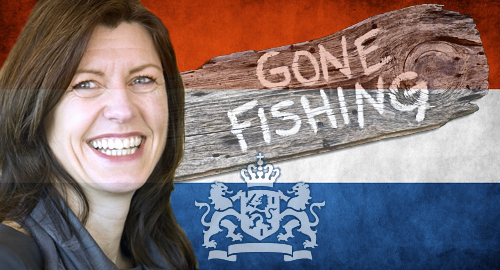 The Netherlands’ gambling regulatory chief is stepping down just as the country prepares to liberalize its online market.
The Netherlands’ gambling regulatory chief is stepping down just as the country prepares to liberalize its online market.
On Friday, the Kansspelautoriteit (KSA) regulatory authority announced that director Marja Appelman (pictured) would be stepping down as of August 1 to take up a new directorship at the Interior Ministry’s Housing Market authority.
Appelman, who has been overseeing gambling activity in the Netherlands for nearly five years, claimed that her “job is done,” citing the KSA’s statutory evaluation in 2017, which determined that the regulator is “operational in order and ready for expansion of its tasks.”
Appelman noted that the Dutch government is finally moving forward with plans to push its long-delayed Remote Gambling Act over the legislative finish line. Appelman said that “both for me and for the Gaming Authority, it is time for the next phase.”
Jan Suyver, chairman of the KSA’s board of directors called Appelman’s departure “a sensitive loss” for the KSA as a whole and that she would be missed, particularly by the board who worked together with her “in a pleasant and constructive manner.”
The board will absorb Appelman’s duties until a permanent replacement can be identified. The KSA is due for further upheaval in October, when both Suyver and director Henk Kesler are facing the end of their respective terms. The KSA is planning a shindig on October 8 to bid farewell to all three departing directors.
Appelman’s tenure saw the KSA adopt strict new enforcement policies to combat what it viewed as unauthorized online gambling activity by internationally licensed sites accepting action from and promoting gambling to Dutch punters.
However, the KSA ultimately found that issuing six-figure financial penalties was far easier than actually collecting from companies that had no physical presence in the Netherlands. Some international operators such as Betsson AB challenged the KSA’s enforcement policies in both Dutch courts and at the European Commission, although these efforts ultimately proved fruitless.
It remains to be seen how many of the sanctioned sites will be among those applying for local online licenses once the Netherlands finally gets around to regulating its newly liberalized market, and what sort of reaction their applications will receive.